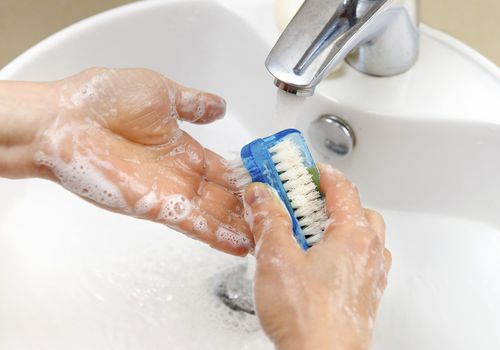Dr. Amit Singh Chhina, Consultant - Pediatrics and Neonatology
Obsessive - compulsive disorder (OCD) features a pattern of unwanted thoughts and fears (obsession) that lead you to do repetitive behaviors (compulsions). These obsession and compulsions interfere with daily activities and cause significant distress. It affects around 1-4% of people in the world. Around 8 in 10 people suffering from OCD develop it by a young age of 18 years old.
Considering the disorder has more chances of beginning in childhood, its common symptoms should not be missed. According to the American Psychiatric Association's Diagnostic and Statistical Manual of Mental Disorders, 5th edition (DSM - 5), OCD is defined as a condition with obsessions (repeating urges or ideas that are irritation and intrusive) combined with compulsions (recurring behaviors) interfering with the person's quality of life and often in association with other neurodevelopmental or psychiatric conditions.
"Children with OCD have obsessive thoughts that are not wanted. These are linked to fears, such as touching dirty objects. They use compulsive rituals to control the fears, such as excessive hand washing", says Dr. Amit Singh Chhina, Pediatrics and Neonatology, Cloudnine Group of Hospitals, Bengaluru.
(Causes)
Dr. Amit says the exact cause of OCD is not known and various underlying etiologic factors have been proposed in the development of OCD in humans of various ages, ranging from behavioral issues to changes in certain parts of the brain and lack of a chemical called serotonin in the brain.
OCD tends to run in families and may have a genetic component. But it may also occur without a family history. In some cases, streptococcal infections may trigger OCD or make it worse.
(Symptoms)
Common obsessions may include:
* Disturbing and unwanted thoughts or images about hurting others.
* Worrying about germs, falling ill, or dying.
“Feeling that things have to be 'just right'.
* Extreme fears about bad things happening or doing something wrong.
Common compulsive may include:
* Excessive washing, scrubbing and cleaning.
* Repeating actions until they are 'just right' or starting things over again.
* Excessive checking: Repeatedly re - checking that the door is locked.
* Arranging things in a particular order.
* Repeating lucky words or numbers.
(Treatments)
Treatments depends on the child's symptoms, age, general health and severity of the condition.
* Family therapy - parents are vital to any treatment process. The schoola may also be involved in care.
* Selective serotonin reuptake inhibitors (SSRI): These medicines help raise serotonin levels in the brain.
* Antibiotics: These may be needed if the OCD is found to be linked to a streptococcal infection.





The Brief. Sign up to receive the top stories you need to know right now.